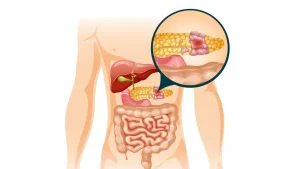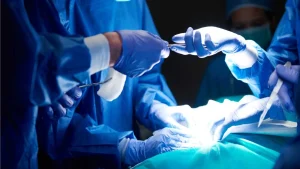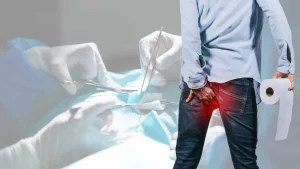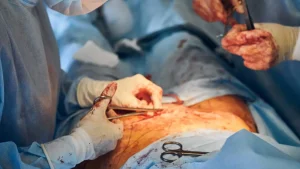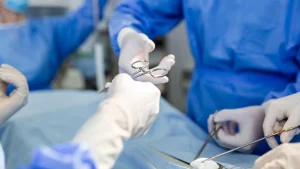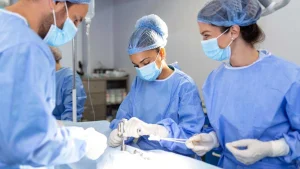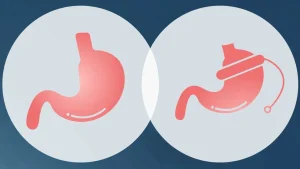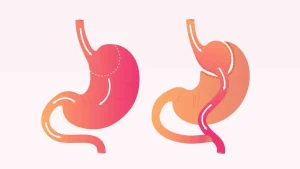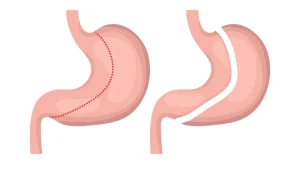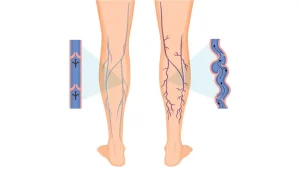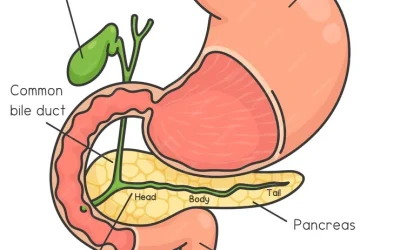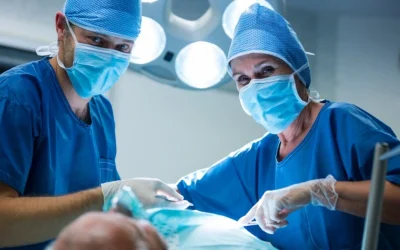Piles Surgery

Overview
Piles, also known as hemorrhoids, can be an uncomfortable and painful condition. We understand that living with piles can be frustrating and affect your daily routine. Our team of experienced laparoscopic surgeons is dedicated to providing you with the best treatment options for piles.
We offer a range of minimally invasive procedures that are safe and effective, including the latest advancements in laser and stapler surgeries. Our priority is to ensure that you receive the highest quality care and that your experience with us is as comfortable as possible.
If you are experiencing symptoms of piles, we encourage you to schedule a consultation with us. Our team will work with you to develop a personalized treatment plan that meets your unique needs and ensures your speedy recovery.
Everything You Need To Know Piles Surgery
What is Piles
Piles, also known as hemorrhoids, are swollen veins in the anal and rectal area that occur when the blood vessels around them become inflamed. This inflammation is caused by increased pressure on the area due to excessive straining when having a bowel movement, pregnancy, excess weight, or sitting for long periods of time. The swollen veins can range in size from small swellings to large lumps and can be very painful.
Causes and Symptoms
Piles are caused by increased pressure on the veins in the anus and rectum, which can be due to a variety of factors such as excessive straining during bowel movements, pregnancy, excess weight, and sitting for long periods of time.
Diet also plays an important role in the development of piles; high-fiber diets are thought to reduce hemorrhoid risk while processed or fatty foods are believed to increase it. Age is also a factor – muscular degeneration associated with aging can contribute to piles.
The most common symptoms of piles include itching around the anus, swelling around the anus, rectal bleeding (especially after a bowel movement), mucous discharge after passing stool, and pain or discomfort in the affected area. In severe cases, there may be skin tags or even infections.
If left untreated, the swelling can become more severe and cause complications such as skin tags and infections. It is important to consult a doctor if you have any of these symptoms as early diagnosis and treatment can reduce complications.
Diagnosis and Evaluation
Piles are normally diagnosed through a physical examination, which includes a digital rectal exam and visual inspection of the anal area. Additional tests such as a colonoscopy or sigmoidoscopy may be recommended to confirm diagnosis and rule out other possible causes of symptoms.
When evaluating a patient’s candidacy for surgery, the doctor will take into account their medical history as well as their overall health. Other factors may also be taken into consideration such as age, lifestyle habits (diet, exercise, etc.), response to non-surgical treatments and any associated diseases (diabetes, heart disease, etc.). The doctor will discuss with the patient the risks and benefits of surgery in order to determine if it is an appropriate solution for the given situation.
Piles Surgery Options
Traditional open surgery for piles is the most commonly used technique and involves cutting away the affected tissue. It can be painful, has a longer recovery time, and may lead to more scarring than other techniques.
Stapled hemorrhoidectomy is a newer technique that involves using a circular stapler to remove the affected tissue without cutting it away. It offers shorter recovery times and less pain than traditional surgery, but may not be suitable for some patients due to its limited reach.
Minimally invasive techniques such as Transanal Hemorrhoidal Dearterialization (THD) and Harmonic Scalpel Procedure (HAL) offer an even less invasive approach with less pain, bleeding, and risk of infection compared to traditional surgery. Such techniques involve shrinking the hemorrhoid with sutures or cutting off its blood supply while preserving the actual tissue.
The surgeon will determine which technique is best for each patient based on factors such as severity of symptoms, size of affected area, age of patient, associated medical conditions, overall health, lifestyle habits and response to non-surgical treatments.
How can Surgery Help?
Surgery can help alleviate the symptoms of piles by removing the affected tissue while preserving or restoring normal function. This can lead to a reduction in pain, swelling, itching, and bleeding that is associated with piles.
Depending on the specific procedure used, some patients may even experience complete resolution of their symptoms. Surgery can improve quality of life by restoring comfort and allowing for a more active lifestyle.
Preparation for Surgery
Preparation for piles surgery can vary depending on the specific procedure being done. Generally speaking, patients should plan to have a physical exam and laboratory tests done to check their overall health prior to the procedure. Other pre-operative tests, such as an ultrasound or colonoscopy, may also be needed depending on the type of procedure being performed.
The surgeon will provide specific instructions for what to do before and after the procedure as well as how to manage any pain or discomfort afterwards. It is important that patients follow these instructions carefully in order to ensure a safe and successful surgery.
Patients may also feel anxious or concerned leading up to the surgery, which is natural. Talking with friends, family and the medical team can help calm anxiety and build confidence. Additionally, taking steps such as researching the procedure, visualizing success and focusing on positive outcomes can all help reduce stress levels before the operation.
Piles Surgery Procedure
The specific steps involved in a piles surgery procedure depend on the chosen technique. Generally speaking, the process begins with anesthesia administration to reduce pain and discomfort during the operation. An incision is then made in the affected area followed by removal of the hemorrhoids, which may involve stitches or other measures to close the wound.
The length of the procedure can vary but typically takes between 30 minutes and two hours depending on individual circumstances. After surgery, patients will receive instructions for properly caring for the wound including how to bathe, change dressings, and manage bandages or drains as necessary.
The recovery time following piles surgery can range from several days to several weeks depending on the type of procedure performed and individual healing abilities. Generally speaking, most people can return back to their normal activities within 1-2 weeks. However, there are certain risks associated with any type of surgery including bleeding, infection, and reactions to anesthesia that must be considered before undergoing any type of operation.
Aftercare and Recovery
After a piles surgery, patients will typically be given instructions on post-operative care to ensure the best outcome. These may include taking medications such as antibiotics to reduce the risk of infection or other medications to manage pain or discomfort.
Physical activities that require strenuous effort should be avoided during the recovery time, and light exercise such as walking can help maintain strength and reduce swelling. Additionally, diet modifications may be necessary in order to promote healing and reduce symptoms; this could include avoiding spicy foods or increasing fiber intake.
To manage any pain or discomfort following the procedure, patients should follow their doctor’s instructions carefully and take all prescribed medications as directed. It is also important to rest when necessary, apply cold compresses to the area if necessary, and elevating the legs whenever possible can help with swelling. As people recover from piles surgery they should start feeling better over time with minimal complications if everything is managed properly.
Cost of Piles Treatment in Mumbai
The cost of piles treatment in Mumbai can vary depending on the specific procedure undertaken, as well as any additional treatments or medications required. Generally speaking, the cost of piles treatment will be determined by factors such as:
- The type and extent of the piles;
- Any other health issues (such as bleeding or infection) that may require further treatment;
- The doctor’s experience and qualifications;
- Whether any tests or imaging scans are necessary prior to surgery; and
- Any additional costs associated with medications, hospital stays, etc. Generally speaking, prices for piles treatments range anywhere from Rs 10,000 – Rs 50,000 depending on the complexity of the procedure and individual circumstances. It is important to speak to your doctor regarding which procedure is best suited to you and what potential costs may be involved.
Frequently Asked Questions about Piles Surgery
-
Will piles surgery cause pain?
Piles surgery is a common procedure that can help reduce symptoms of hemorrhoids and typically involves removing the extra tissue causing the discomfort. While it may cause some pain or discomfort, anesthesia can help to manage this during and after the procedure.
-
Are there any risks associated with piles surgery?
There are risks associated with any kind of operation including piles surgery, such as bleeding, infection, reactions to anesthesia, or complications arising from incisions. It’s important to discuss all potential risks with a doctor before undergoing any kind of operation.
-
Can I return to work or daily activities immediately after piles surgery?
It is usually not recommended that people return to work or daily activities immediately after surgery; however it is best to speak with a doctor in order to determine the appropriate amount of rest required for full recovery.
-
Will I need to stay in the hospital after surgery?
Most patients will not need to stay in the hospital after piles surgery but this will depend on individual circumstances and might require additional monitoring by medical professionals. Prior to surgery, patients should expect an initial consultation followed by administration of anesthesia for comfort. Then incisions will be made and stitches may be used if necessary before the hemorrhoids are removed and the wound closed up.
-
What kind of anesthesia is used for piles surgery?
The type of anesthesia used for piles surgery can vary depending on individual needs but typically involves regional anesthesia or sedation. It’s important to talk over any potential risks associated with certain types of anesthesia before undergoing any kind of operation.
-
Are there any dietary restrictions after piles surgery?
There may also be dietary restrictions after piles surgery; this could include increasing fiber intake or avoiding spicy foods while recovering from the procedure.
-
Will I experience any complications after piles surgery?
Complications following piles surgery are generally uncommon but they do have the potential to arise depending on individual circumstances; these include bleeding, infection, scarring and tissue damage at wound sites. Therefore it’s very important to follow all instructions given by a doctor before and after any kind of operation.
Why choose Dr Ankit Potdar?
Dr Ankit Potdar is a highly experienced piles surgeon in Mumbai with over 10+ years of experience. He also adopts the latest techniques and technologies when treating piles. Furthermore, he uses advanced imaging equipment to accurately diagnose conditions and plans treatment accordingly.
His team strives to provide the best patient care possible, making sure that all patients feel comfortable and confident. He is also dedicated to educating patients on all aspects of their treatment and recovery process, as well as answering any questions or concerns they may have.
Our Services
Pancreatic Cancer
Pancreatic cancer is a type of cancer that affects the pancreas – an organ located in the abdomen
Colon Cancer / Colorectal Cancer Surgery
Colon cancer is a serious and potentially life-threatening disease.
Hernia Laparoscopic Surgery
A hernia is the protrusion of an organ or tissue through a weak or damaged area in the abdominal wall
Piles Surgery
Piles, also known as hemorrhoids, are swollen veins in the anal and rectal area.
Appendix Surgery
Pain or discomfort in your abdomen, it is possible that you may have appendicitis.
Fistula Surgery
A fistula is an abnormal connection between two organs or tissues that can lead to complications.
Gallstone Surgery
Gallstone Surgery is a minimally invasive procedure to remove gallstones.
Gastric Band Surgery
Gastric Band Surgery is a safe, non-invasive bariatric procedure that helps you lose weight quickly and safely
Gastric Bypass Surgery
Gastric Bypass Surgery is a minimally invasive procedure that can help you to achieve your weight loss dreams.
Gastric Sleeve Surgery
Gastric sleeve surgery, an effective and popular procedure for achieving significant weight loss.
Varicose Veins
Varicose veins are enlarged, twisted and swollen veins that occur mainly in the lower legs and feet.

PROFILE
About Dr. Ankit Potdar
Dr. Ankit Potdar is one of the best laparoscopic surgeon in Mumbai, India. He has extensive knowledge and training in advanced laparoscopic and robotic surgery, and is known for his precision, expertise, and compassionate approach to patient care.
He is an expert in general, oncological, advanced laparoscopic GI surgery, Thoracic and Esophageal surgery. He is currently associated with SRV Hospital, Goregaon West and Chembur Mumbai.
He has extensive experience in performing minimally invasive surgeries for various conditions, including gastrointestinal diseases, obesity, hernias, and gallbladder problems.
Patient Treated By Dr. Ankit Potdar
People heavily rely on reviews from other patients when choosing a healthcare provider
Dr. Ankit has done my Brother Harnia Surgery. It went well and my brother recovered so fast. Really good Dr. .Explained every precautions and give full assistance in the follow-up as well.. Thank you Dr. Ankit
Best doctor i ever met. Friendly type nature, my umbilical hernia surgery was done by dr ankit poddar and always recving my calls reply by late nights also ...
Dr Ankit Potdar is a gem of a person. I have been operated for ovarian cancer under his care and we are very satisfied with the treatment received. Doctor is very honest and straightforward and also helped us with the treatment protocol post surgery.
Patient Knowledge Center -Blogs
Blogs
Symptoms of Gallbladder Stones ?
Dr. Ankit Potdar, a renowned gallbladder surgeon in Chembur, specializes in treating gallbladder stones. Learn about symptoms and treatme...
Advantages of Laparoscopic Surgery for Hernia Repair
Transforming Hernia Repair: Meet Dr. Ankit Potdar, Mumbai’s Laparoscopy Expert! Uncover the Benefits of Minimally Invasive Surgery ...
Effective Methods for Gallbladder Stone Relief
Gallbladder stones, also known as gallstones, are a common medical condition affecting millions worldwide. These hardened deposits can ca...

